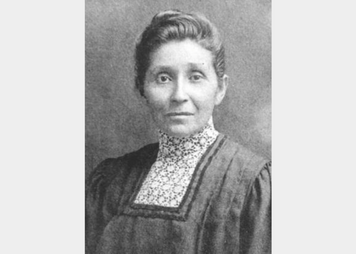
IPR is featuring some of the many Native American and Indigenous pioneers and modern-day heroes to celebrate Native American Heritage Month
Dr. Susan La Flesche Picotte was born in 1865 on Nebraska’s Omaha reservation. She was a public health activist and was the first Native American woman to earn a medical degree.
When she was young, Picotte watched a Native American woman die because white male physician refused to care for her. This ignited a passion in her to change the way Native Americans were treated in health care and society.
She attended Hampton Institute in Virginia, which was known as one of the nation’s first schools of higher education for students of color. Then, she went to the Woman’s Medical College of Pennsylvania where she graduated in 1889 at the top of her class. She returned home to Omaha and became a physician at a government boarding school operated by the Office of Indian Affairs, where she cared for roughly 1,200 people.
In addition to her work as a physician, Dr. Picotte was an outspoken advocate for public health. She led temperance campaigns on the reservation and persuaded the Office of Indian Affairs to ban liquor sales within reservation boundaries. She also advocated for proper hygiene and persuaded people in her town to use screen doors to keep out disease-carrying flies. Against what was popular at the time, Dr. Picotte led campaigns to dissuade the use of communal drinking cups and mescal in new religious ceremonies.
She solicited donations to open a hospital in the reservation town of Walthill, Nebraska before her death in 1915. Today, the hospital she founded has a museum dedicated to her groundbreaking work.
References
Dr. Susan La Flesche Picotte – Changing the Face of Medicine
Nine Native American Women Leaders, Founders, and Fighters – Ellevest



